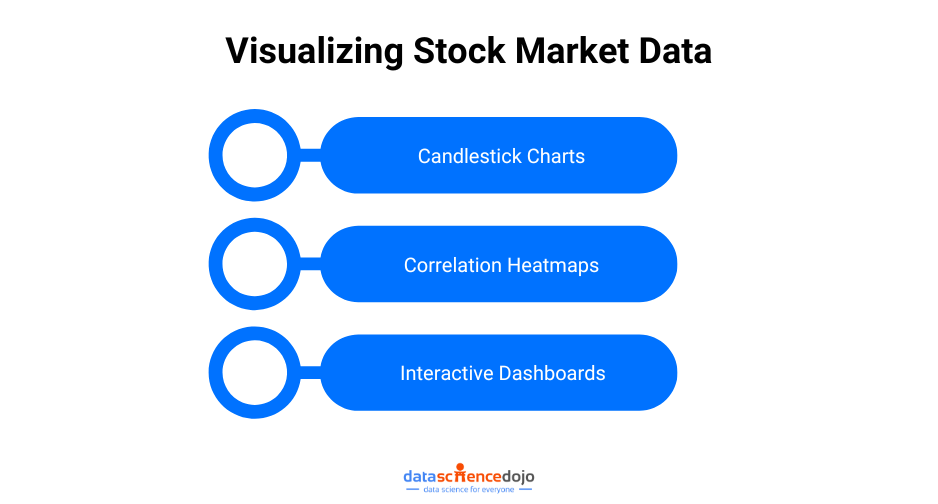The stock market generates massive amounts of data every second—price changes, trading volumes, financial indicators, and more. For investors and analysts, the ability to collect, analyze, and interpret this data efficiently is critical to making informed decisions. That’s where Python comes in.
Python has emerged as a go-to language for financial data analysis due to its simplicity, flexibility, and powerful ecosystem of libraries. Whether you’re pulling historical stock prices, visualizing market trends, or applying technical indicators, Python offers the tools to streamline and scale your stock market strategy.
In this blog, we’ll explore how Python can be used to analyze stock market data—from fetching real-time prices and building insightful visualizations to applying key technical analysis techniques like moving averages, RSI, and Bollinger Bands. Whether you’re a beginner or a seasoned trader, this guide will help you unlock the full potential of Python for smarter investing.
Retrieving Fundamental Stock Data with Python
Python can be used to retrieve a company’s financial statements and earnings reports by accessing fundamental data of the stock. Here are some methods to achieve this:
1. Using the yfinance library:
One can easily get, read, and interpret financial data using Python by using the yfinance library along with the Pandas library. With this, a user can extract various financial data, including the company’s balance sheet, income statement, and cash flow statement. Additionally, yfinance can be used to collect historical stock data for a specific time period.
2. Using Alpha Vantage:
Alpha Vantage offers a free API for enterprise-grade financial market data, including company financial statements and earnings reports. A user can extract financial data using Python by accessing the Alpha Vantage API.
3. Using the get_quote_table method:
The get_quote_table method can be used to extract the data found on the summary page of a stock. This method extracts financial data from the summary page of stock and returns it in the form of a dictionary. From this dictionary, a user can extract the P/E ratio of a company, which is an important financial metric. Additionally, the get_stats_valuation method can be used to extract the P/E ratio of a company.
Python Libraries for Stock Data: Fundamentals and Prices
Python has numerous libraries that enable us to access fundamental and price data for stocks. To retrieve fundamental data such as a company’s financial statements and earnings reports, we can use APIs or web scraping techniques.
On the other hand, to get price data, we can utilize APIs or packages that provide direct access to financial databases. Here are some resources that can help you get started with retrieving both types of data using Python for data science:
Retrieving fundamental data using API calls in Python is a straightforward process. An API or Application Programming Interface is a server that allows users to retrieve and send data to it using code.
When requesting data from an API, we need to make a request, which is most commonly done using the GET method. The two most common HTTP request methods for API calls are GET and POST.
After establishing a healthy connection with the API, the next step is to pull the data from the API. This can be done using the requests.get() method to pull the data from the mentioned API. Once we have the data, we can parse it into a JSON format.
Top Python libraries like pandas and alpha_vantage can be used to retrieve fundamental data. For example, with alpha_vantage, the fundamental data of almost any stock can be easily retrieved using the Financial Data API. The formatting process can be coded and applied to the dataset to be used in future data science projects.
Obtaining Key Stock Data Through APIs
There are various financial data APIs available that can be used to retrieve fundamental data of a stock. Some popular APIs are eodhistoricaldata.com, Nasdaq Data Link APIs, and Morningstar.
- Eodhistoricaldata.com, also known as EOD HD, is a website that provides more than just fundamental data and is free to sign up for. It can be used to retrieve fundamental data of a stock.
- Nasdaq Data Link APIs can be used to retrieve historical time-series of a stock’s price in CSV format. It offers a simple call to retrieve the data.
- Morningstar can also be used to retrieve fundamental data of a stock. One can search for a stock on the website and click on the first result to access the stock’s page and retrieve its data.
- Another source for fundamental financial company data is a free source created by a friend. All of the data is easily available from the website, and they offer API access to global stock data (quotes and fundamentals). The documentation for the API access can be found on their website.
Once you have established a connection to an API, you can pull the fundamental data of a stock using requests. The fundamental data can then be parsed into JSON format using Python libraries such as pandas and alpha_vantage.
Technical Analysis Techniques
To build a well-rounded stock market strategy, it’s important to go beyond fundamental data and tap into technical analysis. While fundamentals tell you what to buy, technical analysis helps you decide when to buy or sell. It focuses on historical price movements and trading volume to forecast future trends.
Incorporating key technical indicators into your workflow can significantly improve your ability to interpret market behavior and refine your entry and exit points.
Moving Averages
One of the most commonly used tools in technical stock market analysis is the moving average. Simple Moving Averages (SMA) and Exponential Moving Averages (EMA) smooth out price data to highlight trends over time. They help identify support and resistance levels, detect trend reversals, and provide clearer insights into the overall direction of a stock’s price. Investors often use crossovers—such as the 50-day and 200-day moving averages—to generate buy or sell signals.
Relative Strength Index (RSI)
The Relative Strength Index (RSI) is a momentum oscillator that measures the speed and change of price movements. It ranges from 0 to 100 and helps traders determine whether a stock is overbought or oversold. In stock market terms, an RSI above 70 may indicate an overbought condition, while an RSI below 30 suggests the stock could be undervalued. This makes RSI a powerful indicator for spotting potential reversals and entry points.
Bollinger Bands
Bollinger Bands are another valuable tool for analyzing stock market volatility. These bands consist of a moving average and two standard deviations plotted above and below it. When stock prices move closer to the upper band, the market may be overbought; near the lower band, it may be oversold. Bollinger Bands help investors understand price extremes, evaluate risk, and detect consolidation or breakout phases.
Data Visualization
In the fast-paced world of the stock market, data visualization is essential for interpreting trends, making informed decisions, and staying ahead of market movements. By turning raw financial data into visual insights, investors can better understand price action, correlations, and overall stock market behavior.
Candlestick Charts
Candlestick charts are a staple in stock market analysis, offering a detailed view of price movements over specific time intervals. Each “candle” displays the open, high, low, and close prices, making it easier to spot patterns and trends. These charts help investors and traders analyze market sentiment, identify reversal signals, and assess stock volatility.
Tools like Plotly and mplfinance make it simple to create compelling visualizations for both short-term and long-term stock market strategies.
Correlation Heatmaps
Correlation heatmaps are invaluable for understanding relationships between different stock market assets. By visualizing how stocks or indicators move in relation to one another, investors can identify which assets are positively or negatively correlated. This is particularly useful when constructing a diversified stock market portfolio or analyzing sector-wide behavior.
Libraries like Seaborn help generate clean, informative heatmaps that reveal key insights at a glance.
Interactive Dashboards
Interactive dashboards elevate stock market analysis by offering a dynamic and real-time view of financial data. Using tools like Dash and Streamlit, users can build custom dashboards that display live stock prices, trading volume, technical indicators, and more—all in one interface.
These dashboards allow traders and analysts to monitor multiple aspects of the stock market simultaneously, reducing the need to jump between platforms and improving decision-making efficiency.
Conclusion
Python has become an indispensable tool for stock market enthusiasts, data analysts, and financial professionals alike. From retrieving real-time data and performing statistical analysis to visualizing trends and building interactive dashboards, Python empowers users to make smarter and faster investment decisions.
By expanding beyond basic data handling to include data visualization and technical analysis techniques, readers can gain a more holistic view of the market. Tools like candlestick charts, correlation heatmaps, moving averages, RSI, and Bollinger Bands bring valuable insights that go far beyond what raw numbers alone can offer.
Whether you’re a beginner just getting started or an experienced trader refining your strategy, Python offers the flexibility and power to adapt to your stock market goals. With the right mix of tools and techniques, you can transform complex data into actionable intelligence—and stay ahead in an ever-evolving financial landscape.





